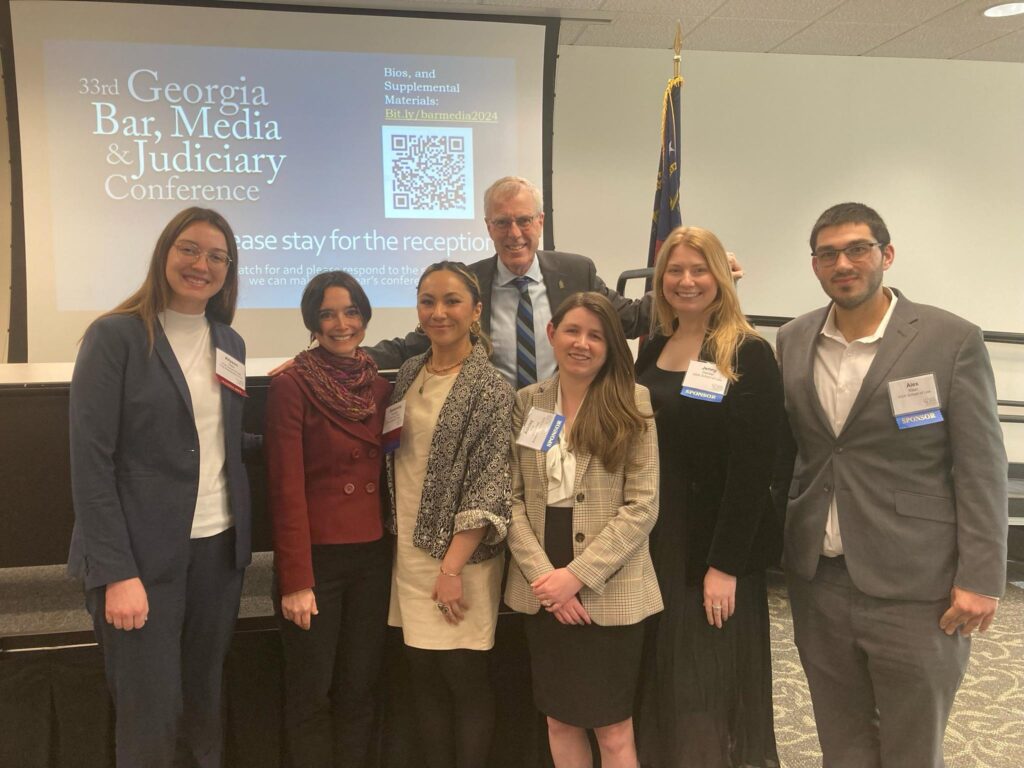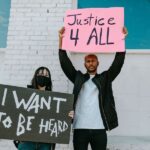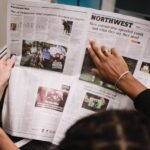
Members of UGA Law School’s First Amendment Clinic moderated and presented during the 33rd annual Georgia Bar, Media & Judiciary Conference.
Legal fellow Allyson Veile presented on her research about the history of public records laws in Georgia as part of a panel moderated by UGA law and journalism professor Jonathan Peters titled, “The Georgia Open Records Act at 65: Challenges and Opportunities, Both New and Old.”
Clinic attorney Samantha Hamilton moderated a panel about Georgia RICO and the First Amendment which covered trends across the separate prosecutions of Young Thug, Donald Trump, and Defend the Atlanta Forest protestors. Director of UGA Law School’s Criminal Defense Practicum Elizabeth Taxel also participated.
Director Clare Norins moderated, “What’s the Intel on Artificial Intelligence?” about how the explosion of generative A.I. is impacting the fields of law and journalism. The panel also featured UGA law professor Christian Turner.
The annual conference was was co-chaired by Frank Lomonte, Richard Griffiths, Jonathan Peters, and Clare Norins, and hosted in collaboration with the Georgia First Amendment Foundation and the Georgia State Bar.

The Issue
Free Speech
The First Amendment protects the right of private individuals to engage in speech and expression without being censored or punished by the government because of their viewpoint. While the government may constitutionally regulate the time, place, and manner of private speech in public forums it must do so in a viewpoint-neutral manner and, depending on…
Explore Issue
The Issue
Government Transparency
Georgia’s legislature finds that transparent government is essential to a free, open, and democratic society. The state’s “sunshine laws” guarantee access to the public records and public meetings of local and state government agencies. The First Amendment and Georgia’s uniform superior court rules also protect the public’s right to observe court proceedings and review court…
Explore Issue
The Issue
Media Law
The First Amendment guarantees a free press, meaning journalists are able to express any opinions they want about the government, even criticisms. However, journalists are often hindered in their ability to gather and publish news through the threat of lawsuits, subpoenas, and criminal prosecution. Read more about our support for student and professional journalists here.
Explore Issue